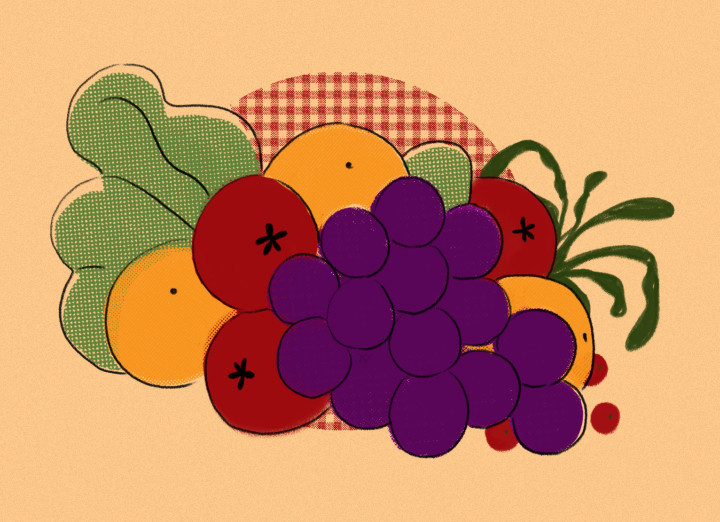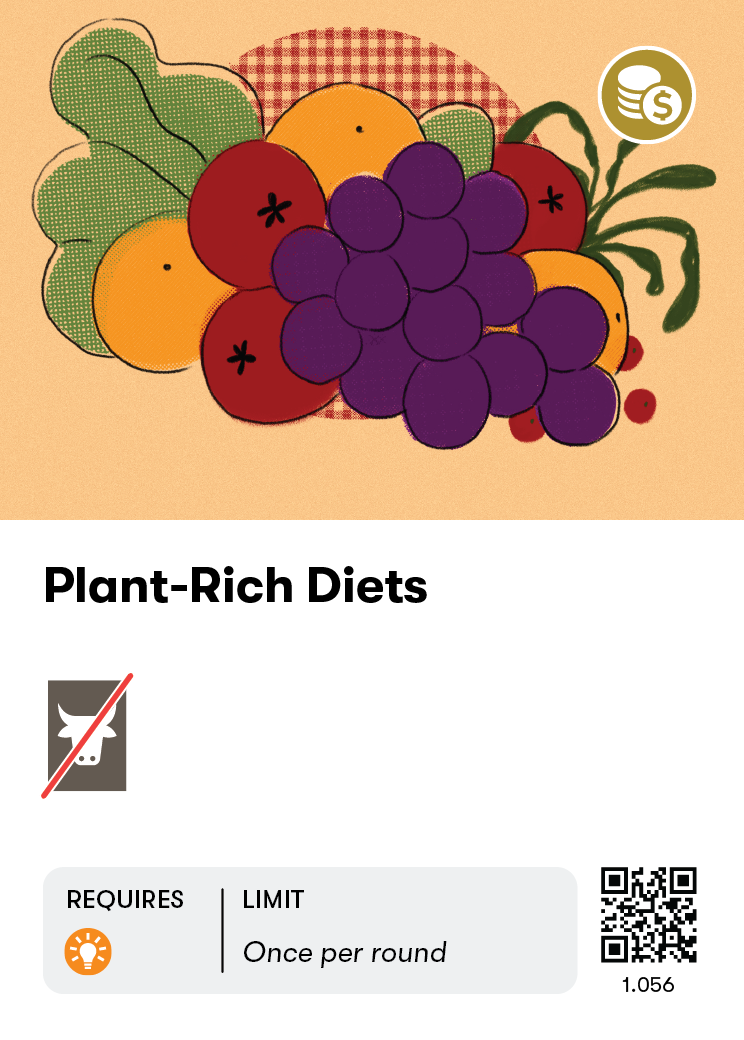Plant-Rich Diets
Local Project
Plant-rich diets feature fruits, vegetables, legumes, nuts and whole grains, with minimal or no consumption of animal products.
Plant-rich diets tend to have lower environmental impacts than diets high in animal products. Meat and dairy production alone are responsible for 14.5% of global greenhouse gas emissions. They take up two thirds of agricultural land globally, and are linked to deforestation and biodiversity loss. The most problematic products are red (e.g. beef, pork) and processed meat (e.g. sausages, bacon, hot dogs). Halving the consumption of meat, dairy and eggs in Europe, for example, could cut EU greenhouse gas emissions from agriculture by 25 to 40%. If everyone in the world started eating a vegetarian or vegan diet, we could cut greenhouse gas emissions from agriculture by 63% and 70% respectively.
To help people adopt plant-rich diets, policymakers can inform the public of the health and environmental benefits of plant-based diets, through publishing official dietary guidelines. They can also ensure that meals in public spaces, like schools, hospitals and official buildings, offer sustainably-sourced plant-based food.
They can also support people working in the agricultural sector who fear losing their livelihoods if we reduce the amount of animal products we consume. Reforming public subsidies to support fruit and vegetable farmers, and introducing new policies to support people to learn new ways to farm could help meat and dairy producers to move to new areas of food production.
You must have an Innovation tag in this card's stack to take this action.
Remove 1 Agriculture Emissions token from your player board.
You may take this action once per round.

Plant-based diet (Wikipedia)
What is a plant-based diet and why should you try it? (Harvard Health)
Plant-based diets and their impact on health, sustainability and the environment (WHO)
Plant-Rich Diets (Project Drawdown)
Use fruits, vegetables and grains as main courses during breakfast, lunch, and dinner, filling at least half of your plates with it. When eating meat, go for much smaller amounts, considering it as a garnish not as the main dish.
Use recipe books and online guidance to find plant-based meals you enjoy, including substitutions like plant-based milks.
Encourage the food provider at your work, the canteen of your children’s school or your favorite restaurant to include plant-based meals in their menus.
Get advice from a doctor if you have health conditions that make you worry about moving to a plant-rich diet.



